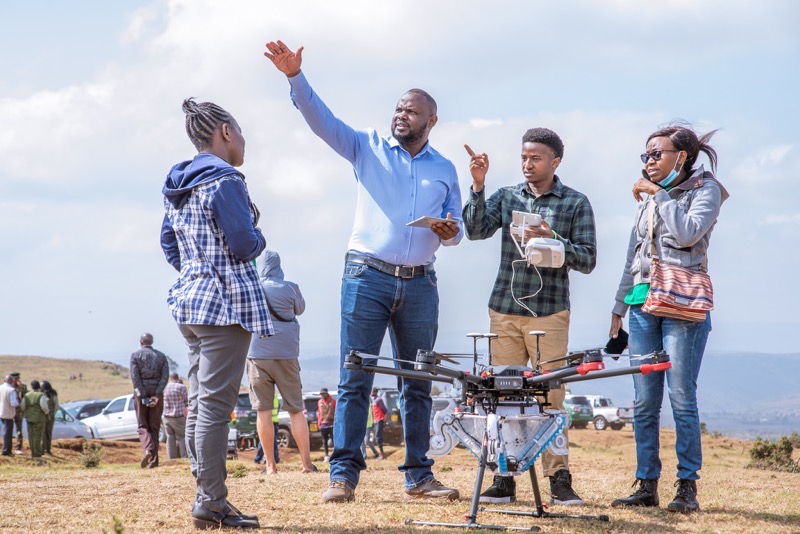advertisement
How Kenya Flying Labs Aims To Uplift the Health Sector

The world of invention and innovation thrives on the constant fuel of discoveries. This is evident in how Kenya has taken a step in boosting the health and agricultural industry alike. This is after Kenya Flying Labs, a licensed humanitarian drone service provider, demonstrated how the country’s first-ever airship will work to deliver timely medical supplies.
The idea came to fruition when Mr. Mohammed Akasha ventured into engineering, aeronautical engineering to be specific, afterward to end up partnering with Cleopa Otieno to set up Kenya Flying Labs where they would work exclusively with drones.
This is where the journey of a single step began. Mr. Akasha received a grant to investigate how drone technology could be used in a cholera prediction study. The Claudine airship is solar-powered and combines the lifting power of helium with advanced flight control and an all-electric powertrain. It can conduct multi-stop flights, enabling reverse logistics. However, to ensure an easy and agile flight, several health centers were mapped out to help develop route plans and create delivery schedules.
advertisement
It partnered with the Jomo Kenyatta University of Agriculture and Technology (JKUAT), and Cloudline, a South African-based airship manufacturer, to launch the project in Kenya of course awaiting regulatory approvals from Kenya Civil Aviation Authority (KCAA).
Significantly, regulatory bodies such as the Ministry of Health, the Kenya Medical Supply Authority (KEMSA), the Pharmacy and Poisons Board (PPB) among others had given the project the go-ahead. Progressively, Kenya flying labs would later conduct training at Cloudline’s office in Stellenbosch, Cape Town in January, based on the setup of the airship operation base, maintaining airships, and piloting.
Subsequently, Kenya Flying Labs showcased how various counties will benefit from the solar-powered airship through a test run in Kisumu and Homabay counties, with a motive to inform the local community of the tech and engage them as key stakeholders. This technology is in line with the Kenyan government’s Vision 2030, which identifies the health sector as the key pillar. It aims to weed out perennial issues that affect the health sector not forgetting the agro-sector. This could be fostered through monitoring traces of diseases like cholera, pests and diseases, lack of water or too much of it, being able to predict crop yields, and so on.
advertisement
Once research and findings have been collated, Kenya Flying Labs will liaise with the key stakeholders, health workers, county government, and the local community to devise and implement safety measures to curb crises.
The many benefits of the airship is aiding in the delivery of medical supplies to far-flung and inaccessible places in the country due to poor infrastructure. “It has the advantage of cutting distance more than half, thus able to deliver medical supplies much faster,” Cleopa Otieno, Kenya Flying Labs CEO, stated. Moreover, it requires little infrastructure to set up airstrips. He added that airship delivery will enhance the safety of personnel and drugs due to the reduction of boat transportation.
The primary focus will be on restocking due to the airship’s slow pace. Furthermore, deliveries will adhere to a predetermined and approved schedule.